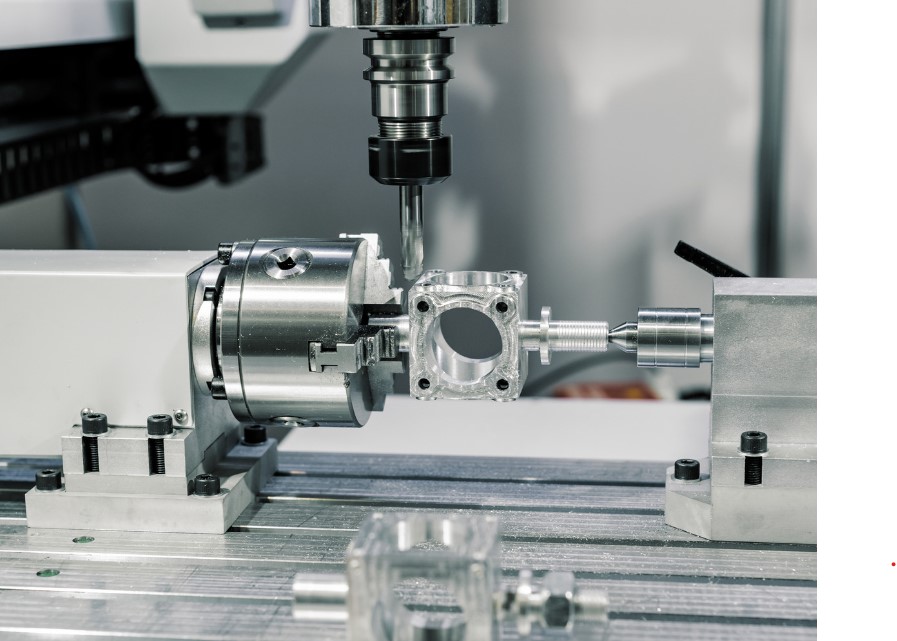Computer Numerical Control (CNC) A type of machine machining, has revolutionized manufacturing and engineering in recent decades. By integrating digital technology into traditional machining processes, CNC machining has emerged as a dominant method for manufacturing high-precision components and parts in a variety of industries. This article examines the mechanics and benefits and varied applications of CNC cutting to emphasize its transformative impact on the modern engineering.
The mechanics of CNC Machining
CNC machining is a subtractive process of manufacturing in which the material is removed from a block of solid material, or workpiece to give it the shape you want. The process is controlled by pre-programmed computer software that dictates the movements of the machine. The code produced by CNC machines is dependent on the kind of machine used and the complexity level of the product. But, the principle remains the same: High-speed cutters precisely cut away materials to produce the final product.

The accuracy of CNC manufacturing is among its most significant benefits. Digitalization allows for extremely accurate and constant production. This minimizes human error and guarantees an even distribution of batches. This level of precision is vital for industries where even small deviations can result in significant implications, like medical devices, aerospace manufacturing for automotive and medical devices.
Digital computers play a crucial role in CNC machine operation
CNC Machining is a very precise and efficient process which is dependent on the digital technology. CNC machines are controlled using specialized software that manages the entire manufacturing process. This software converts computer-aided design (CAD) models into a series of precise instructions, which the CNC machine then follows to create the part. These instructions specify everything from the cutting depth and the angle to the speed of the tool.
In industrial facilities of larger size, computers can be connected directly to CNC machines. This makes it possible to communicate seamlessly and control. This integration permits constant adjustments in real time and monitors to ensure the highest performance and decrease the time between repairs. Automating CNC machineries allows for the continuous operation. This increases productivity and reduces time to market.
CNC Machining Benefits
CNC machining offers numerous advantages over traditional manufacturing methods. One of the greatest advantages is its capability to produce complex and intricate parts with high precision. The precision of CNC machining eliminates the requirement for manual adjustments and Rework, which reduces waste while improving efficiency. Furthermore, CNC machines can operate constantly, which makes them ideal for large-scale production runs.
Another benefit is the versatility of CNC machine. With the option of changing the programming the machine can create many different components. CNC machine is able to be modified which makes it suitable for prototyping as well as mass production. This lets manufacturers quickly react to changes in market demand.
Automatization of CNC machining improves workplace safety. The chance of injuries and accidents is reduced by eliminating manual interventions. CNC-machined components are also more durable and perform better, which improves customer satisfaction.
Industries Benefiting from CNC Machining Services
CNC-based machining is used in a wide range of industries, all benefiting of its efficiency, precision, and versatility. CNC machines in the aerospace industry produce components that must meet high safety and performance standards. CNC machining is used by the medical device industry for the production of complex surgical implants and instruments. Precision is of the utmost importance.
The automotive industry employs CNC machines to create engine components, transmission parts as well as intricate exterior and interior features. Similar to electronics, the industry benefits from CNC machining’s ability to produce tiny, precise parts for consumer electronics and communications devices. The jewelry and art industries utilize CNC technology to produce intricate designs and custom pieces.
The Future of CNC Machining
CNC capabilities for machining are anticipated to increase as technology advances. Innovative technologies like multi-axis machining and additive manufacturing integration and advanced material will push the boundaries of what’s possible with CNC technology. Machine learning and artificial intelligence will likely increase the precision and efficiency of CNC machine machining.
CNC machining is a breakthrough in precision, efficiency and flexibility, has had a profound impact on the modern world of engineering and manufacturing. Its capability to make complex parts with a high degree of accuracy makes it an indispensable instrument across a range of industries. CNC manufacturing, as the technology continues to evolve is expected to remain an essential component of manufacturing’s future.